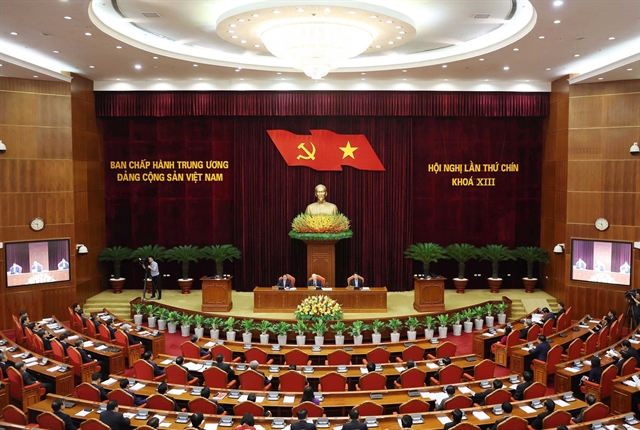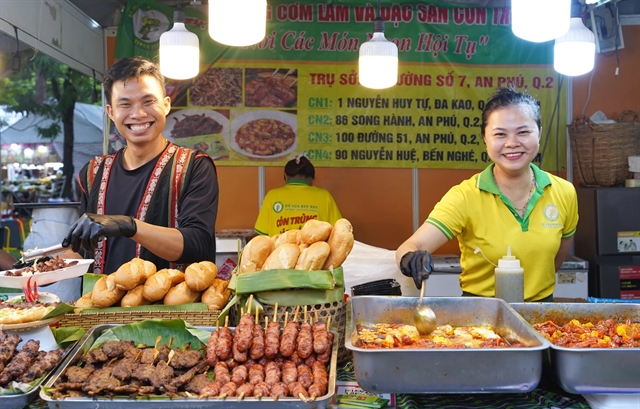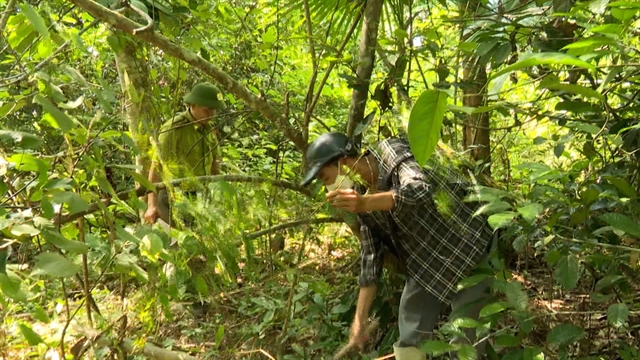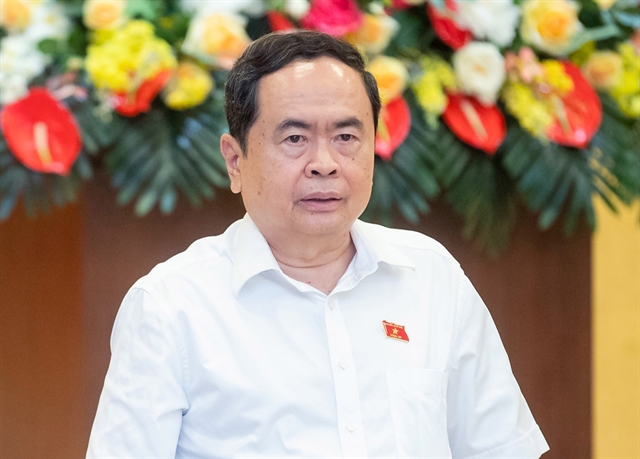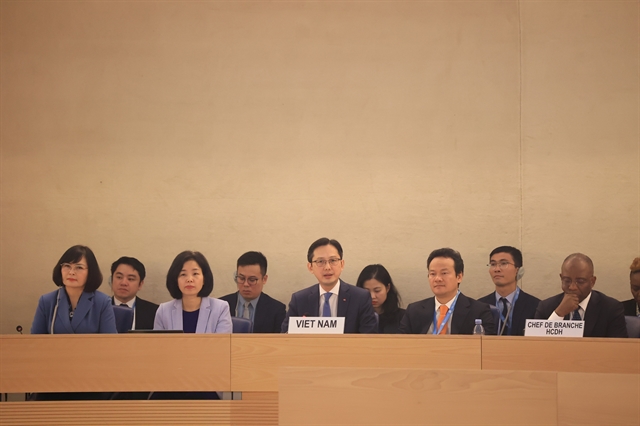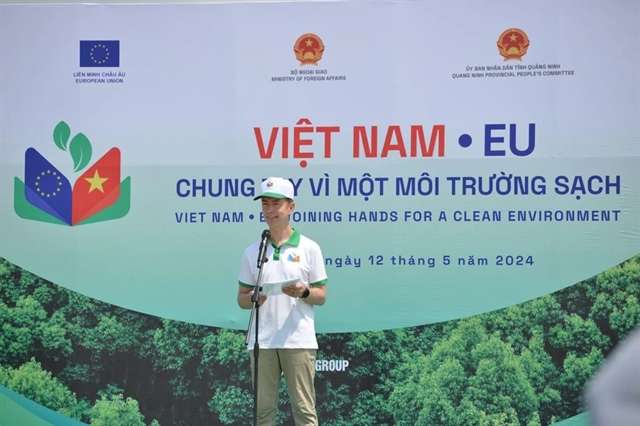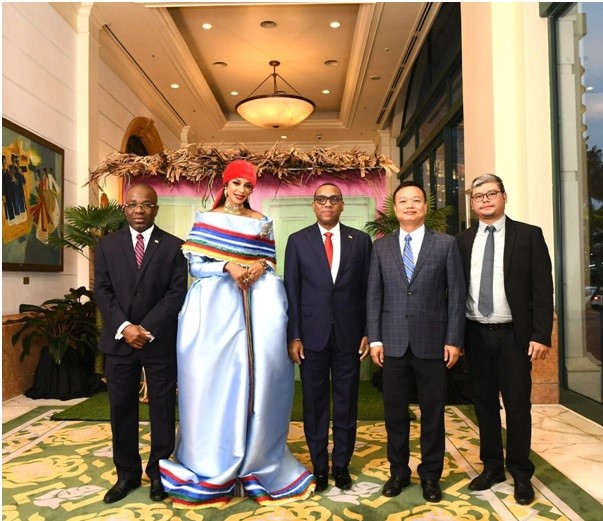 Life & Style
Life & Style

BẮC GIANG — A festival dedicated to quan họ (love duet) folk singing has been organsied recently at the special national heritage site of Bổ Đà Pagoda in Tiên Sơn Commune in the northern province of Bắc Giang.
Hosted by the People's Committee of Việt Yên Town, the event attracted over 1,000 artists from 52 quan họ (love duet singing) clubs to participate.
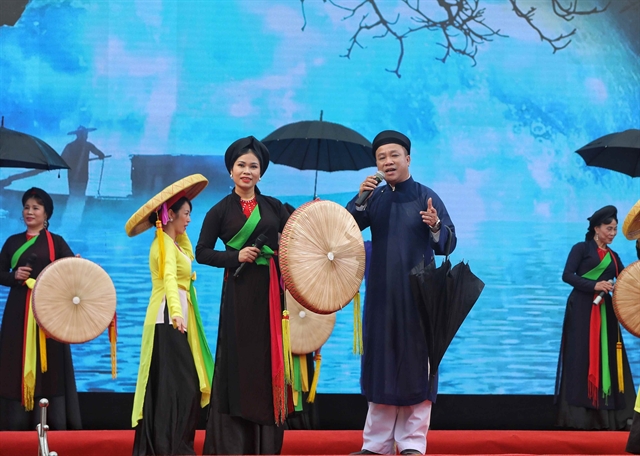 |
| Quan họ artists perform at the 2024 Quan Họ Singing Festival. |
Each participating club presented four or five performances, including solo, duets, group singing, male-female duet, and with or without musical accompaniment. Performances presenting tunes with ancient lyrics and traditional musical instruments have been encouraged at the event.
With attentive preparation, the performances staged at the festival have immersed the audience in an enchanting atmosphere, with male and female singers wearing tứ thân (four-panel) traditional dresses and ba tầm palm-leaf hats. The audience had the opportunity to truly appreciate the fascinating and heart-touching melodies of quan họ folk songs.
Deputy Chairman of the People's Committee of Việt Yên Town, Thân Văn Thuần, stated that Việt Yên is honoured to have two UNESCO-recognised intangible cultural heritage – quan họ and ca trù (ceremonial singing). They also have three festivals that have been recognised as National Intangible Cultural Heritage.
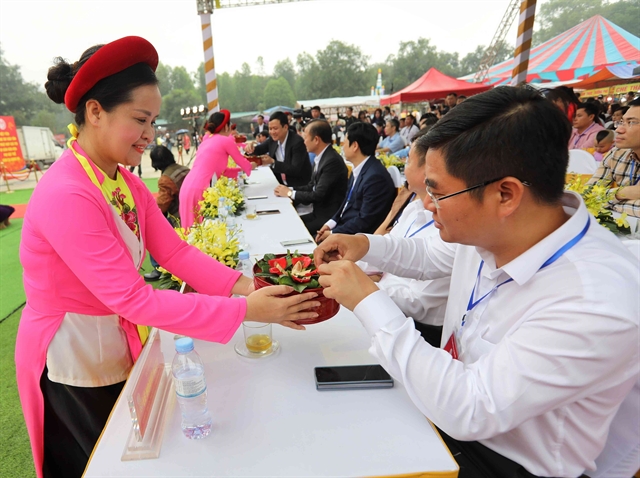 |
| Quan họ performers offer visitors pieces of trầu that consist of betel leaf and areca nut. In old Vietnamese customs, trầu is a must-have offer at any reception. |
Realising the significance and importance of traditional festivals and quan họ folk singing in the people’s cultural and spiritual life, in recent years, Party and government authorities at all levels and various sectors have shown special attention to the preservation of traditional festivals and the art of performing quan họ singing.
Up to now, Việt Yên has 18 quan họ villages recognised by the UNESCO as on the Representative List of the Intangible Cultural Heritage of Humanity, with three People's Artists and 19 Meritorious Artists.
There are more than 50 quan họ clubs founded by the People's Committees of communes and wards, and 120 quan họ practicing villages. Among them, Thổ Hà Village still maintains the call-and-response singing that is famous throughout the Kinh Bắc northern region. The villages of Nội Ninh and Hữu Nghi continue to preserve the ancient style of quan họ singing, while Trung Đồng Village still reserves ancient yet rare versions of quan họ songs that are not found elsewhere.
Implementing the Project on Cultural Preservation and Cultural Value Promotion, from 2009 to the present, the People's Committee of Việt Yên has directed and coordinated the organisation of dozens of quan họ singing classes, drawing thousands of participants. The authority also has organised 23 quan họ singing festivals at Bổ Đà Pagoda, attracting thousands of male and female performers to participate. Additionally, thousands of CDs, flyers, and publications have been printed to support the teaching and spreading of quan họ.
Socialisation efforts in the preservation and promotion of quan họ folk singing have received active participation from individuals, organisations, and enterprises.
Deputy Chairman Thuần has suggested that in the near future, Party and Government authorities at all levels should continue to support quan họ clubs and artisans in the preservation and promotion of traditional festivals, as well as ca trù and quan họ singing.
 |
| Representatives of quan họ folk singing clubs receive souvenir flags from festival's organisation board. |
They need also to pay attention to the restoration of historical and cultural relics, as well as the building and repairing of cultural houses, creating conditions for them to be places for cultural and artistic exchanges, and for ca trù and quan họ singing practice. Regular organisation of competitions, and performances during festivals and national holidays should also be encouraged. VNS

